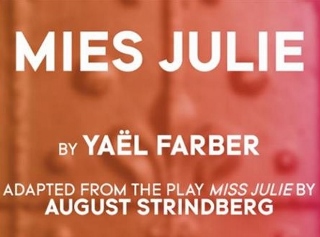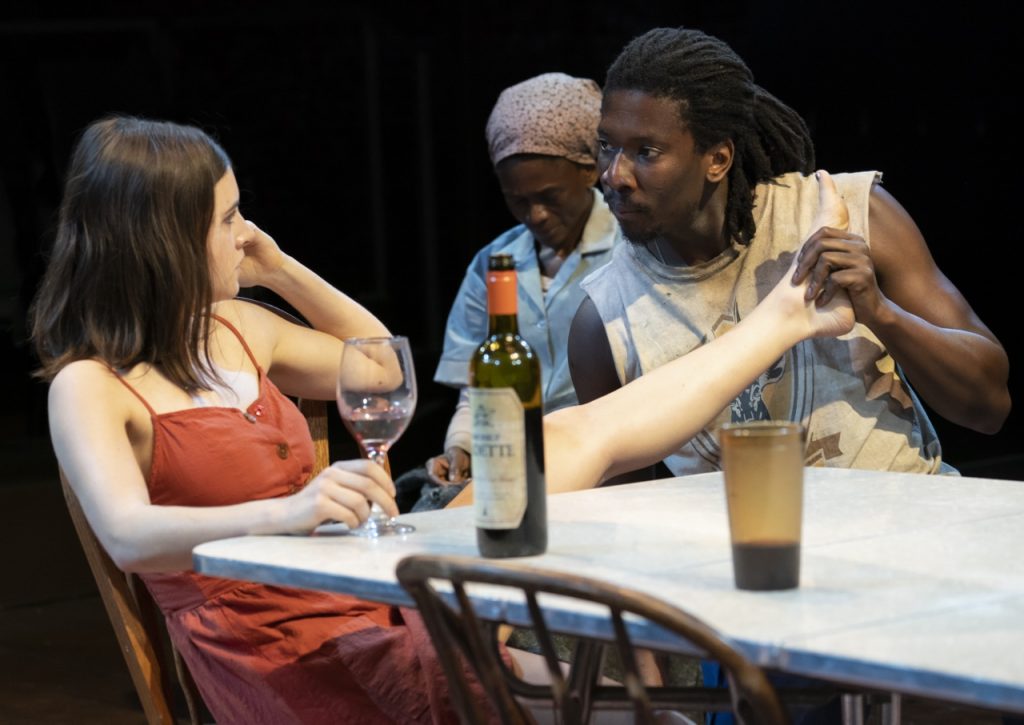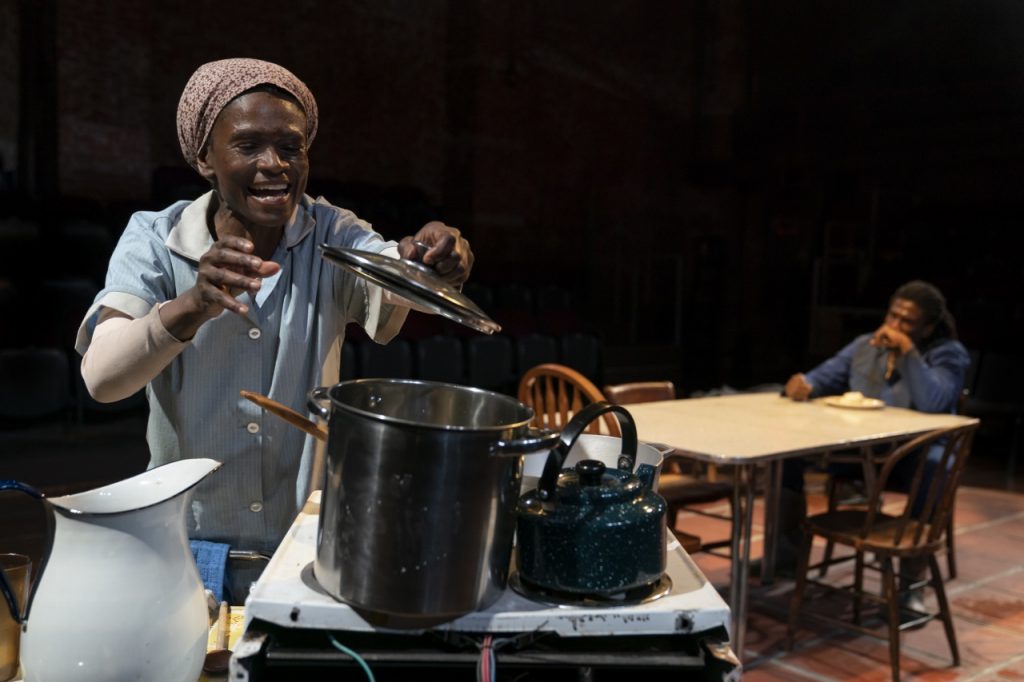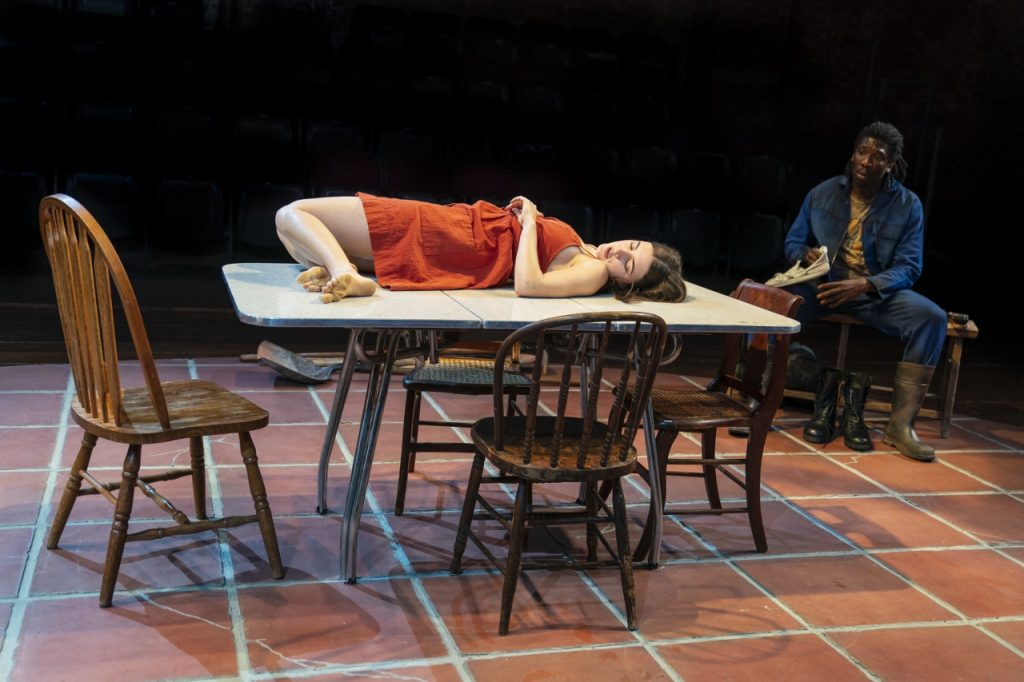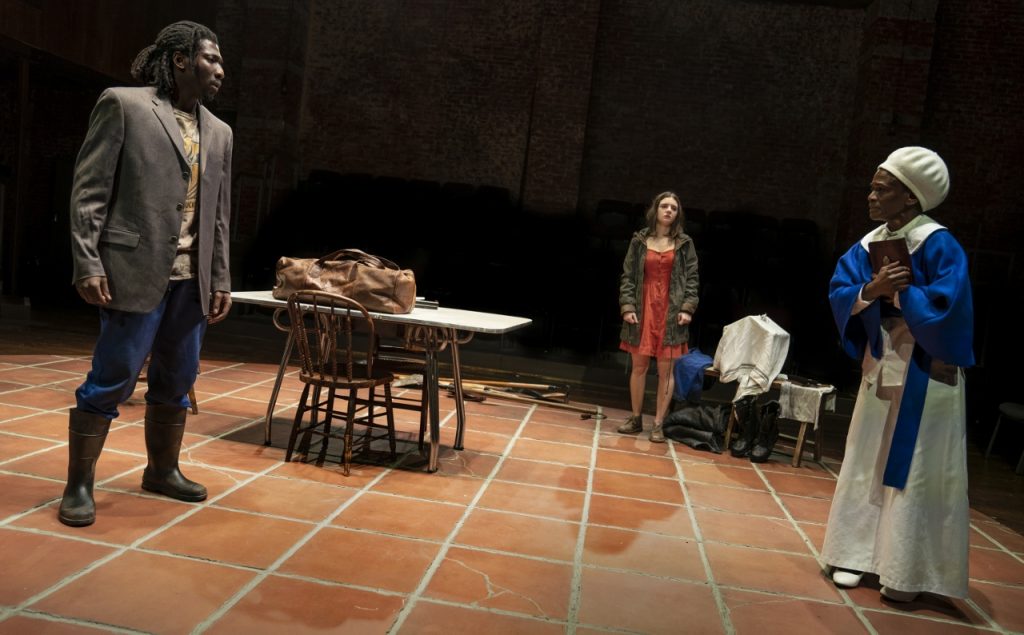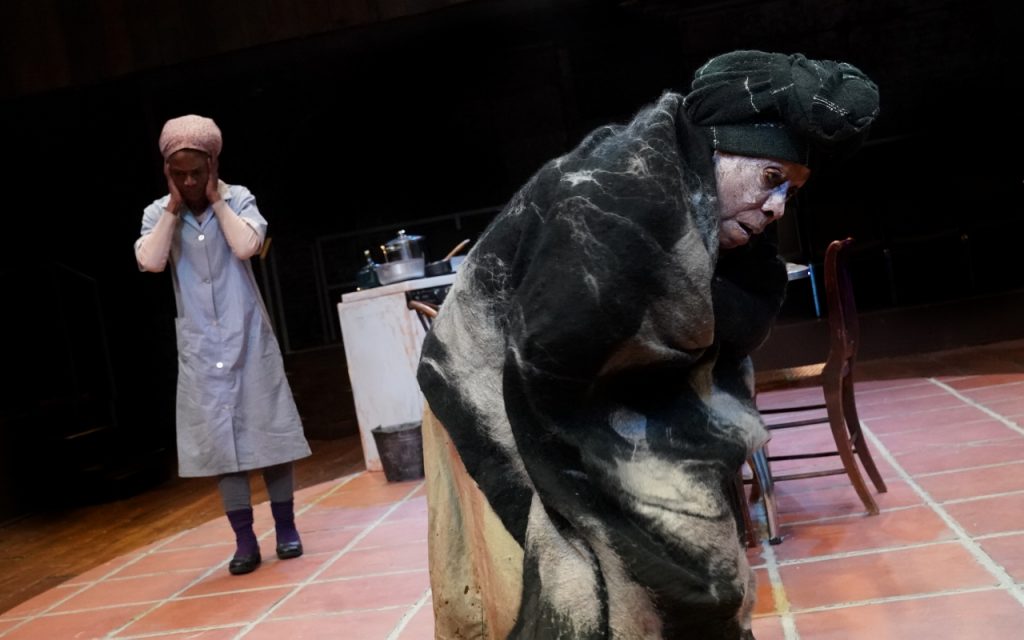DON’T MIES IT
In Mies Julie, Yaël Farber’s contemporary adaptation of August Strindberg’s 1889 play Miss Julie, Farber swaps out Strindberg’s Swedish estate for a prosperous farm in the barren South African desert. Playing through March 10 at Classic Stage Company, Strindberg’s examination of class structure takes a backseat to themes of racial stratification and colonialism. Though the updating could have been gimmicky, this change of setting feels like the opposite, stripping the play down to its bare, ugly bones — refusing to let us look away.
The basic plot structure remains the same: Mies Julie and her unseen father, who are white Afrikaners, have as two Xhosa farm servants John and Christine (in a strong change, their relationship has changed from betrothed to mother and son). Set against the backdrop of Freedom Day, the anniversary of the end of apartheid in South Africa, the tempestuous Julie taunts and teases John, attempting to demean him and seduce him in turn.
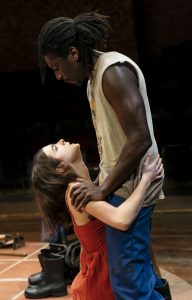 The play hinges on continual shifts of power, as they each take their turn dominating, manipulating, and occasionally expressing true vulnerability, culminating in an act of fatal violence. Shariffa Ali’s in-the-round staging and David L. Arcenault’s sparse and claustrophobic kitchen set effectively evoke the desolation surrounding the characters, both literal and metaphorical, leaving them trapped with nowhere to run.
The play hinges on continual shifts of power, as they each take their turn dominating, manipulating, and occasionally expressing true vulnerability, culminating in an act of fatal violence. Shariffa Ali’s in-the-round staging and David L. Arcenault’s sparse and claustrophobic kitchen set effectively evoke the desolation surrounding the characters, both literal and metaphorical, leaving them trapped with nowhere to run.
As John and Julie, James Udom and Elise Kibler are worthy adversaries with electric chemistry. Though their accents are patchy at points, especially Kibler, they are mostly successful at maintaining the tension during their long two-hander scenes. Patrice Johnson Chevannes is stoic and heartbreaking as Christine, the cook and John’s mother, a religious, resigned, lifelong chattel: Christine remains psychologically chained to the kitchen, haunted by a still-active tree beneath the floor that grows from the bones of covered-up loved ones. Unbeknownst to her, she becomes another object of John and Julie’s struggle, as Julie’s absent mother led Christine to tend to her like a daughter at John’s expense.
Farber uses Strindberg’s framework to elegantly probe the psychological wounds of post-apartheid South Africa, and the characters don’t pull any punches in their attempts to get under each others’ skin. The action is haunted by a ghostly unspeaking ancestor (Vinie Burrows), who drifts in and out while John — who grew up in peonage on the estate — and Julie — his childhood friend and social superior — argue over who truly belongs to the land they stand on. Farber also explicitly draws on the cultural baggage of the relationships between black men and white women in historically racially segregated societies, raising the stakes of the duo’s relationship well beyond the original.
Adaptation is a tricky art, and the script does occasionally slip into overly obvious statements of its themes. However, for the most part, Mies Julie is able to evoke and heighten the spirit of the original into a forbidding, startling night of theater.
photos by Joan Marcus
Mies Julie
Classic Stage Company
in rep with The Dance of Death
Lynn F. Angelson Theater at CSC, 136 East 13th St
ends on March 10, 2019
for schedule and tickets, call 212.352.3101 or visit CSC
